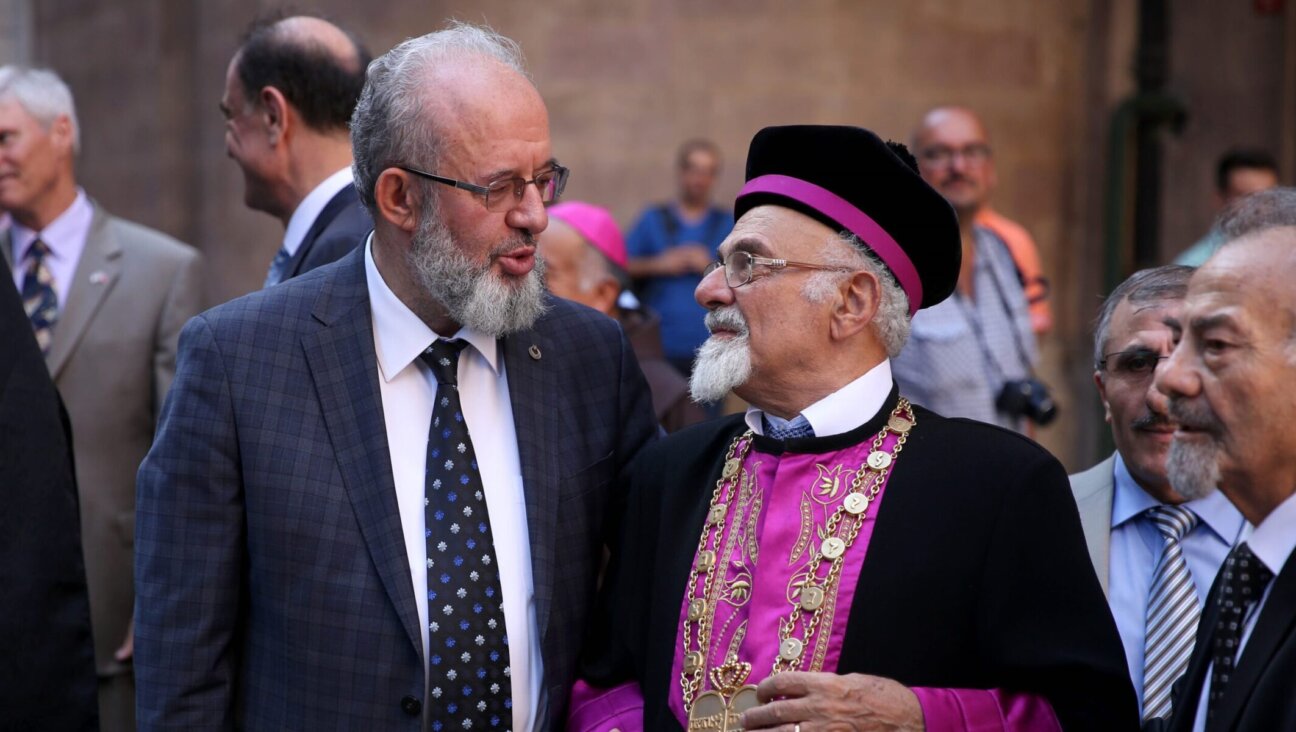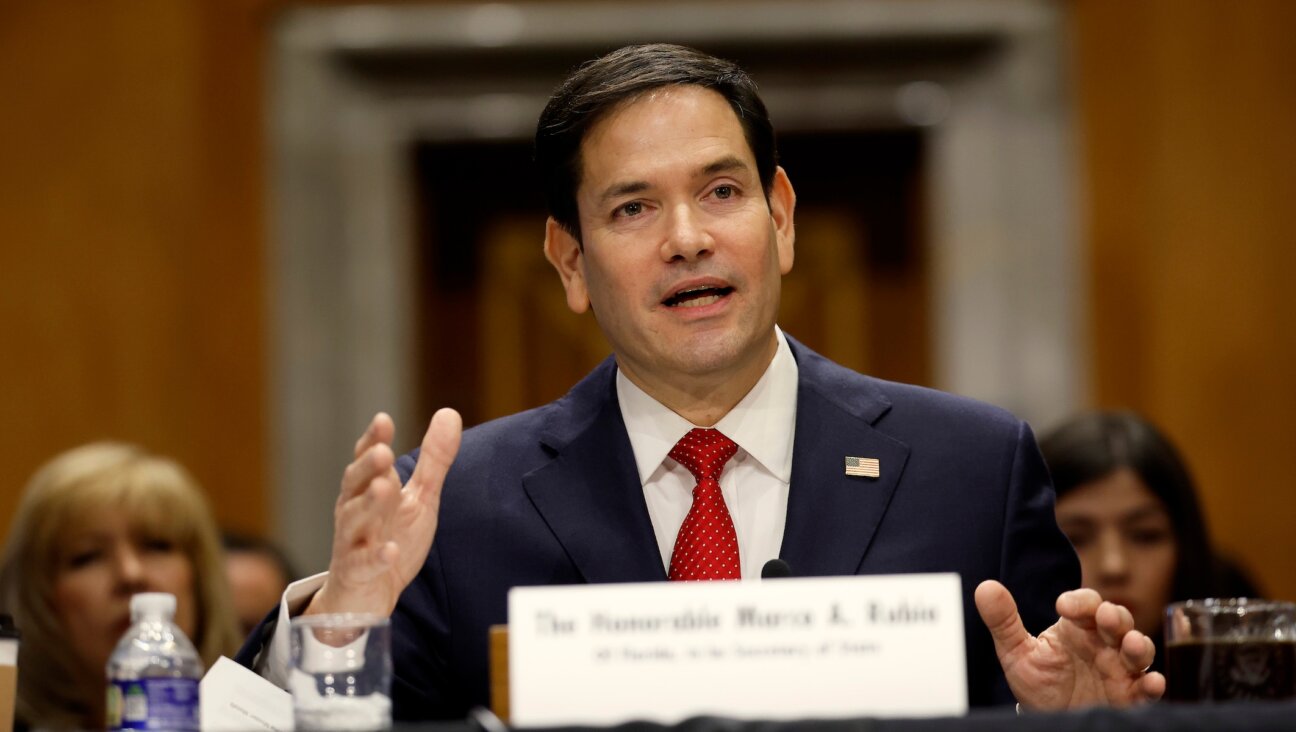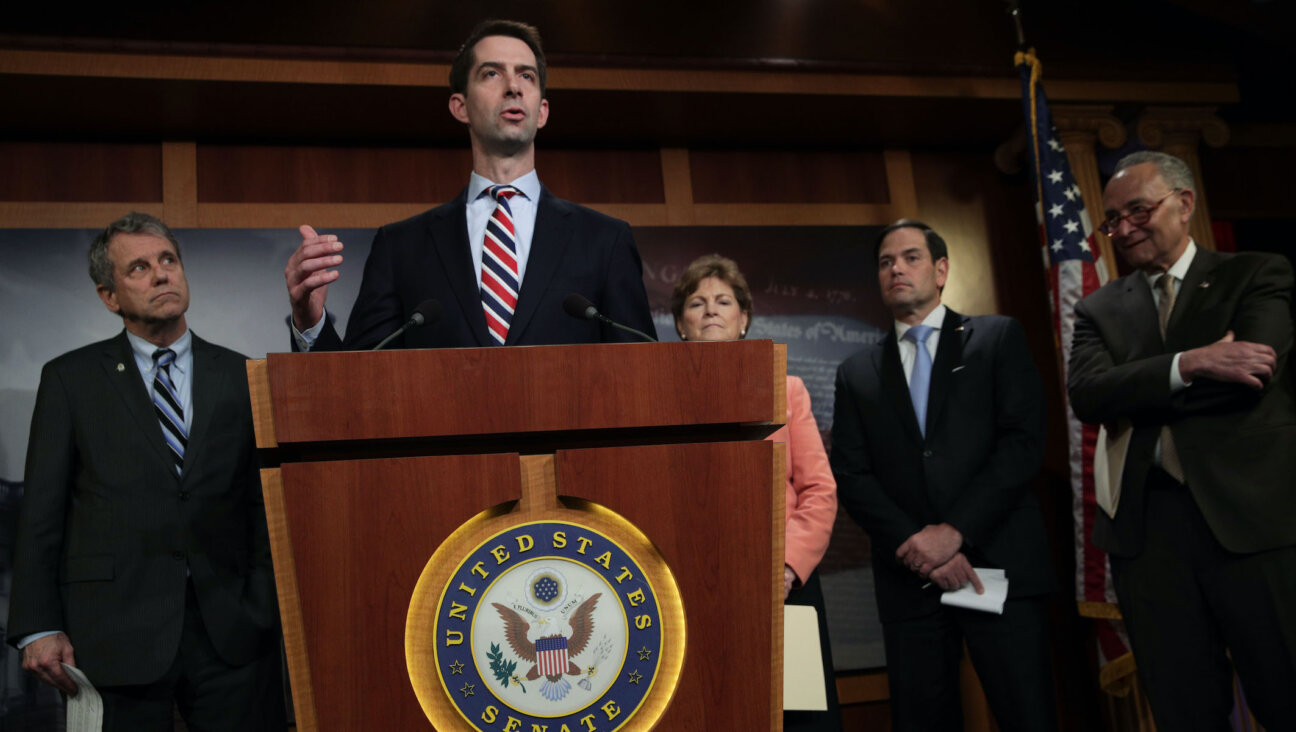Iran Expects ‘More Rationality’ From Donald Trump Once He Takes Office

Image by Haaretz/AFP
Iran expects to see “more rationality” on the part of Donald Trump once he assumes the role of U.S. president and leaves behind what was merely campaign rhetoric, an Iranian central bank official said.
At a conference in Frankfurt, other Iranian bankers also said they did not expect long-term adverse effects from Trump’s win, even though he ran for president opposing a landmark nuclear deal the United States signed last year with Iran.
“What has been said during the election (campaign) was for the election competition. We expect to see more rationality on the position that Trump is going to take after becoming president,” Iranian Central Bank Vice Governor Peyman Ghorbani told Reuters on the sidelines of the conference.
“The (U.S.) administration will come to the point that they have to honor the (agreement) and that’s the only right way forward,” he said.
Vali Zarrabieh, chairman of Tehran-based Saman Bank, agreed and said he expected Trump to decide on a pragmatic Iran policy, beneficial to the American people. “Trump is at the end of the day a businessman … I don’t see major issues coming up.”
The remarks were echoed by German Finance Minister Wolfgang Schaeuble in a panel discussion with his Slovakian counterpart Peter Kazimir in Berlin.
“Many people say that the office of the president of the United States of America shapes the person more strongly than the person (shapes) the office,” Schaeuble said when asked about his expectations regarding Trump.
Kazimir said more clarity was needed about Trump’s policy and Europe should be better prepared for different scenarios.
Trump, who assumes office on Jan. 20, has made contradictory statements on Iran, making it unclear how he will act. The 2015 deal allowed sanctions imposed on Iran by the West over its nuclear program to be lifted, but European banks are still reluctant to finance deals out of fear they could run foul of existing U.S. sanctions and incur massive penalties down the line.
Ghorbani said the central bank saw no reason for companies to be afraid of coming to Iran and that sooner or later banks would thaw towards doing business again.
“Sooner or later the big European banks will come to the understanding that they have to break the ice and start to work with Iran,” he said, lauding Total’s “smart” decision to return to the country in a deal signed earlier this month.
Lenders such as BNP Paribas, Deutsche Bank or Commerzbank have paid billions of dollars to settle allegations of breaching Western sanctions, putting off other big financial institutions from renewing ties with Iran.
The Frankfurt conference was attended by plenty of representatives of the Iranian financial services groups and advisers, but hardly any German bankers.
Saman Bank’s Zarrabieh said that he was talking to all large European banks about possibly doing business.
“… but it is very difficult for them to ringfence their Iran business, to create Chinese walls in order not to touch U.S. dollars or a U.S. person and that makes it very difficult for very large banks to run these operations,” he said.
Bank Hekmat Iranian, a medium-sized Iranian commercial bank, has tried to get in touch with the large European lenders. “But we have had no response,” said vice president Nader Hasanpour.
Instead, Iranian banks have started doing business – in areas like trade finance or payment processing – with a slew of medium-sized European banks, said Mansour Tafazoli, vice president at bigger Parsian Bank.
“Most of the trades are done in euros, some in Indian rupees, Korean won or Chinese renminbi. Not too much in pounds,” he said.
A message from our Publisher & CEO Rachel Fishman Feddersen

I hope you appreciated this article. Before you go, I’d like to ask you to please support the Forward’s award-winning, nonprofit journalism so that we can be prepared for whatever news 2025 brings.
At a time when other newsrooms are closing or cutting back, the Forward has removed its paywall and invested additional resources to report on the ground from Israel and around the U.S. on the impact of the war, rising antisemitism and polarized discourse.
Readers like you make it all possible. Support our work by becoming a Forward Member and connect with our journalism and your community.
— Rachel Fishman Feddersen, Publisher and CEO






















